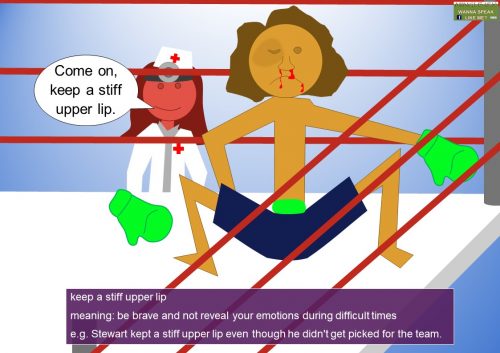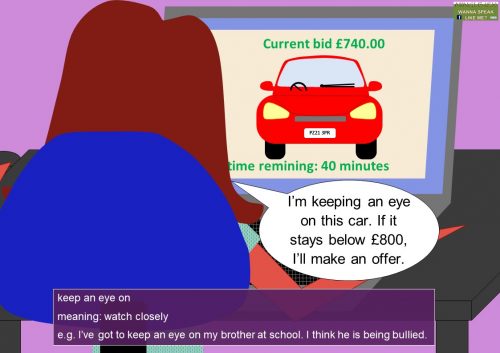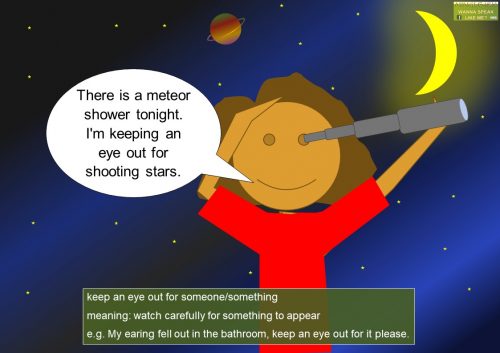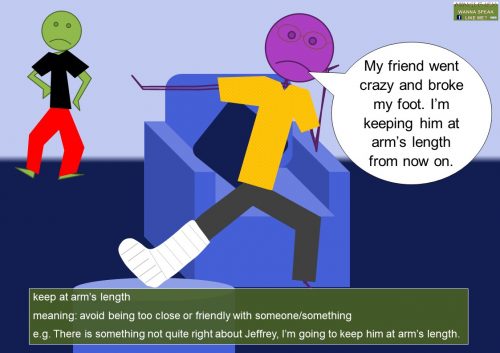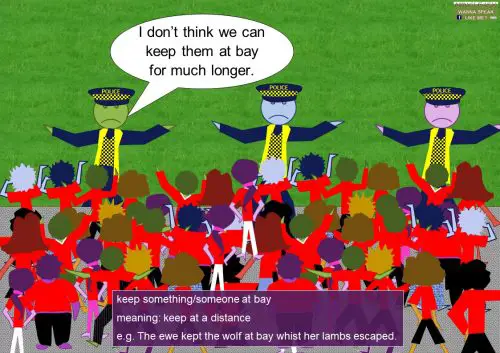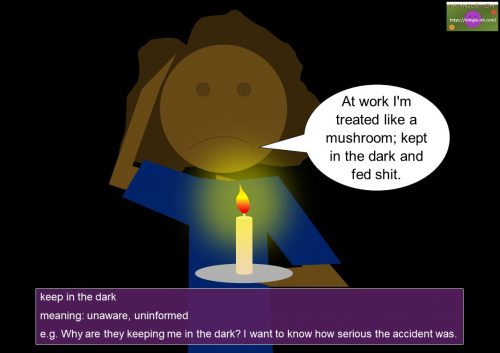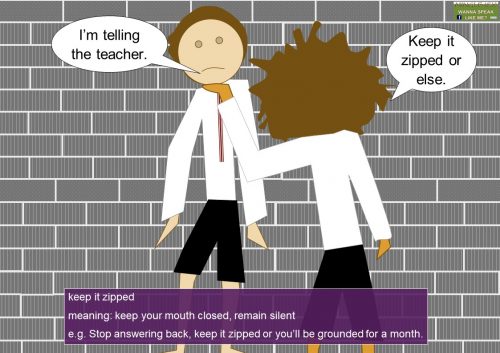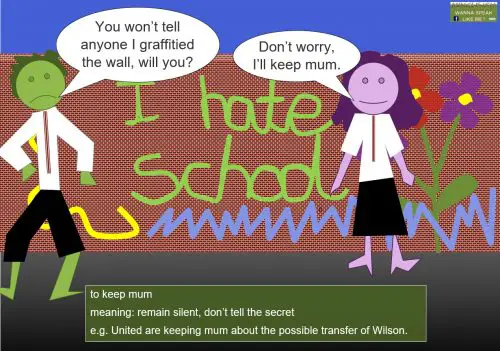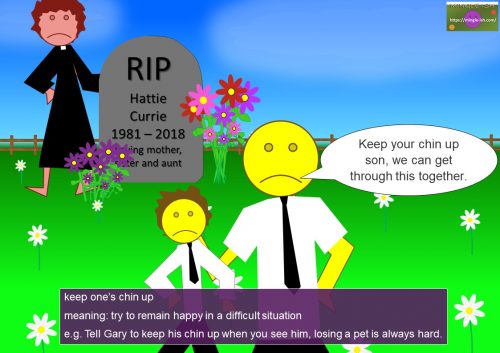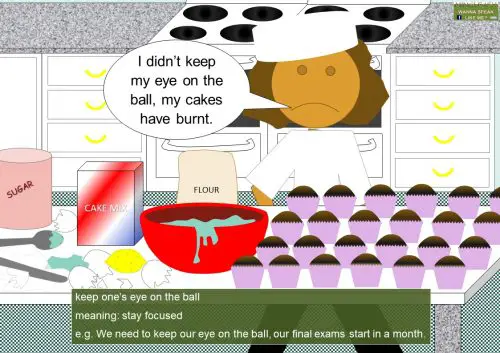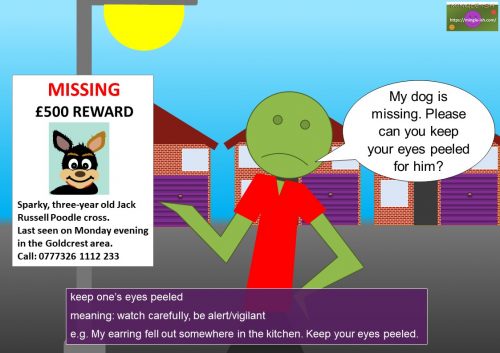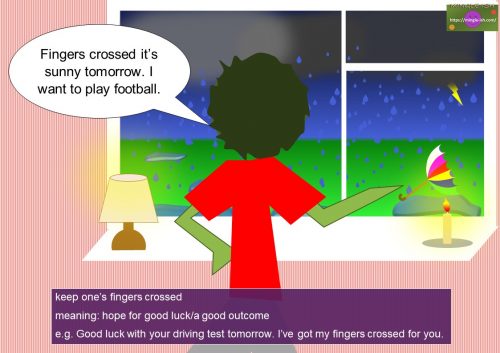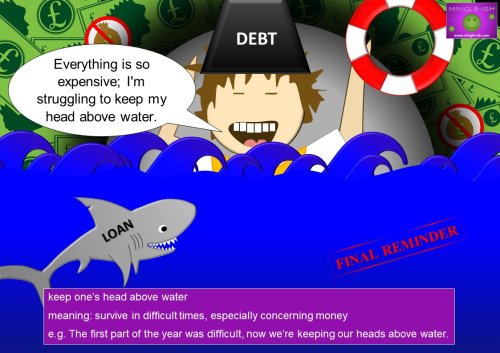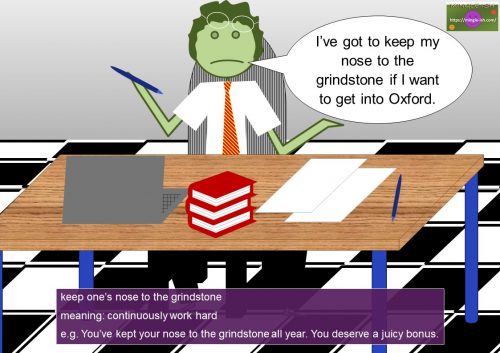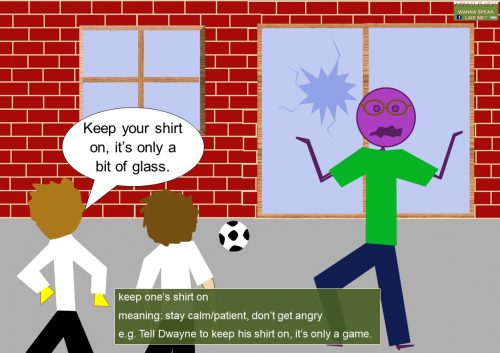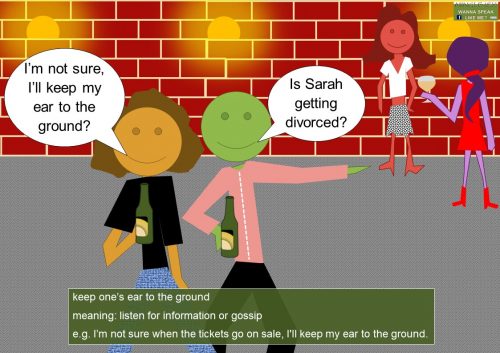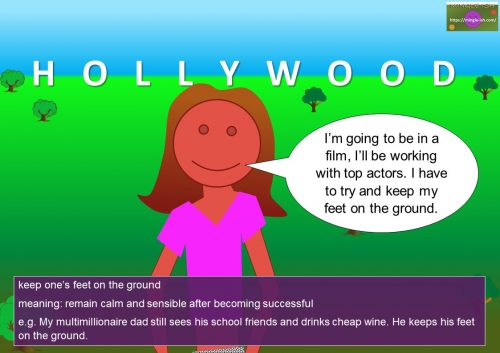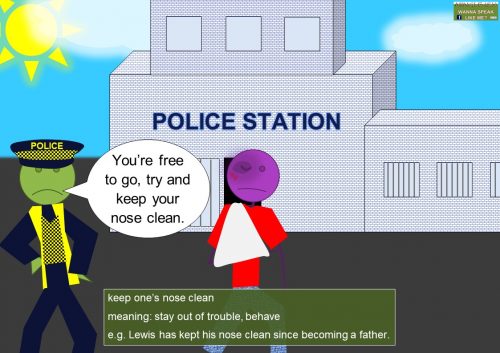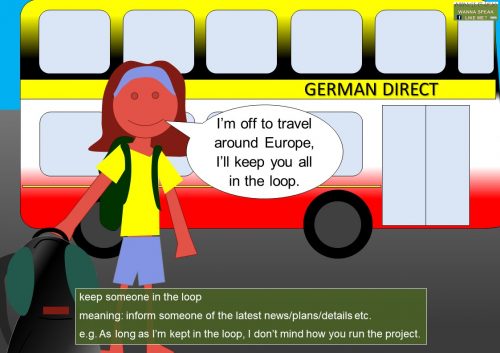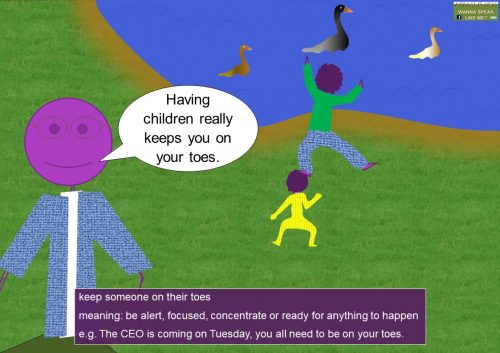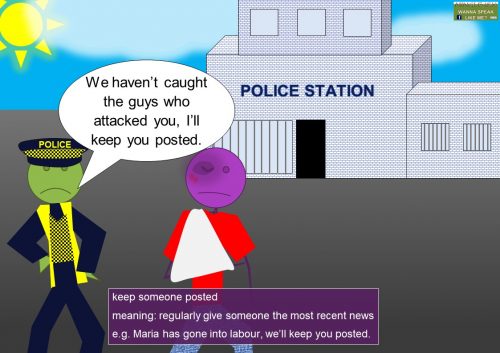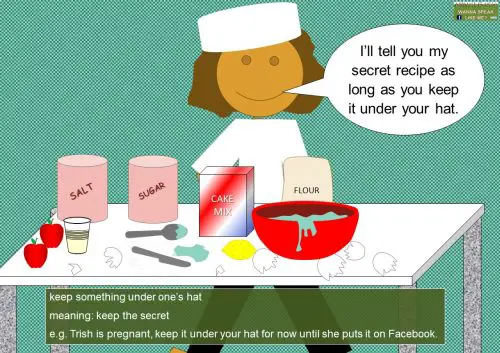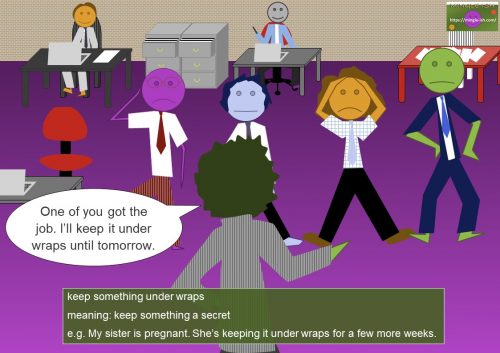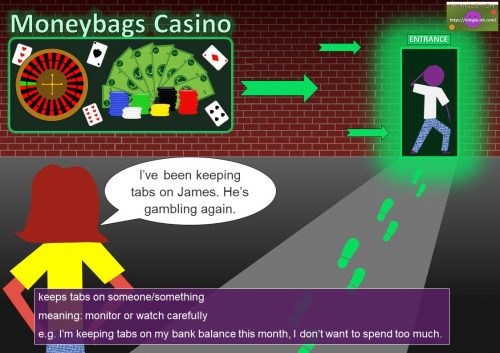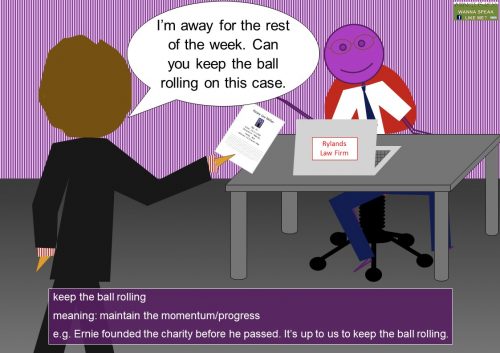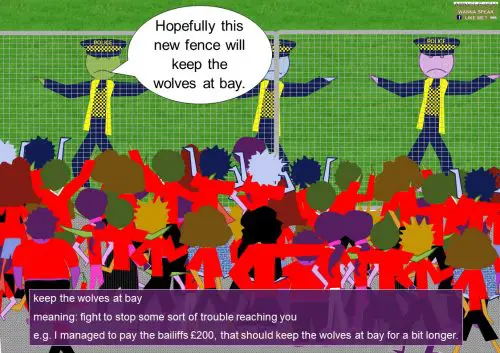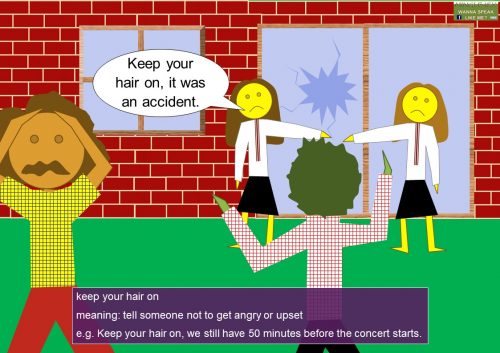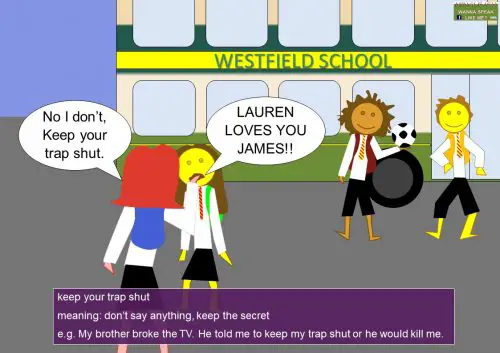The word ‘keep’ can mean many different things. As a verb, the meaning is to continue or retain possession.
For example:
- Keep walking down the road then turn left. (continue)
- He said I could keep the blue pen. (retain possession)
Keep is an irregular verb. The past tense is kept and the past participle is kept.
idiomatic phrasal verbs
Did you know phrasal verbs are sometimes used in idioms? See if you can spot any. If you don’t know any phrasal verbs with ‘keep’, click here to learn them.
idioms list with ‘keep’
- keep a stiff upper lip – be brave and not reveal your emotions during difficult times
e.g. Stewart kept a stiff upper lip even though he didn’t get picked for the team. - keep an eye on – watch closely
e.g. I’ve got to keep an eye on my brother at school. I think he is being bullied. - keep an eye out for someone/something – watch carefully for something to appear
e.g. My earing fell out in the bathroom, keep an eye out for it please. - keep at arm’s length – avoid being too close or friendly with someone/something
e.g. There is something not quite right about Jeffrey, I’m going to keep him at arm’s length. - keep at bay – keep at a distance
e.g. The ewe kept the wolf at bay whilst her lambs escaped. - keep in the dark – unaware, uninformed
e.g. Why are they keeping me in the dark? I want to know how serious the accident was. - keep it zipped – keep your mouth closed, remain silent
e.g. Stop answering back, keep it zipped or you’ll be grounded for a month. - keep mum – remain silent, don’t tell the secret
e.g. United are keeping mum about the possible transfer of Wilson - keep one’s chin up – try and stay positive during a difficult time
e.g. Tell Harry to keep his chin up, things can only get better. - keep one’s ear to the ground – listen for information or gossip
e.g. I’m not sure when the tickets go on sale, I’ll keep my ear to the ground. - keep one’s eye on the ball – stay focused
e.g. We need to keep our eyes on the ball, our final exams start in a month. - keep one’s eyes peeled – watch carefully, be alert/vigilant
e.g. My earring fell out somewhere in the kitchen. Keep your eyes peeled. - keep one’s feet on the ground – remain calm and sensible after becoming successful
e.g. My multimillionaire dad still sees his school friends and drinks cheap wine. He keeps his feet on the ground. - keep one’s fingers crossed – hope for good luck/a good outcome
e.g. Good luck with your driving test tomorrow. I’ve got my fingers crossed for you. - keep one’s head above water – survive in difficult times, especially with money
e.g. The first part of the year was difficult, now we’re keeping our heads above water. - keep one’s nose clean – stay out of trouble, behave
e.g. Lewis has kept his nose clean since becoming a father. - keep one’s nose to the grindstone – continuously work hard
e.g. You’ve kept your nose to the grindstone all year. You deserve a juicy bonus. - keep one’s shirt on – stay calm/patient, don’t get angry
e.g. Tell Dwayne to keep his shirt on, it’s only a game. - keep someone in the loop – inform someone of the latest news/plans/details etc.
e.g. As long as I’m kept in the loop, I don’t mind how you run the project. - keep someone on their toes – be alert, focused, concentrate or ready for anything to happen
e.g. The CEO is coming on Tuesday, you all need to be on your toes. - keep someone posted – regularly give someone the most recent news
e.g. Maria has gone into labour, we’ll keep you posted. - keep something under one’s hat – keep the secret
e.g. Trish is pregnant, keep it under your hat for now until she puts it on Facebook. - keep something under wraps – keep something a secret
e.g. My sister is pregnant. She’s keeping it under wraps for a few more weeks. - keep tabs on – monitor or watch carefully
e.g. I’ll keep tabs on my bank balance this month, I don’t want to spend too much. - keep the ball rolling maintain the momentum/progress
e.g. Ernie founded the charity before he passed. It’s up to us to keep the ball rolling. - keep the wolves at bay – fight to stop some sort of trouble reaching you
e.g. I managed to pay the bailiffs £200, that should keep the wolves at bay for a bit longer. - keep your hair on – tell someone not to get angry or upset
e.g. Keep your hair on, we still have 50 minutes before the concert starts. - keep your trap shut – don’t say anything, keep the secret
e.g. My brother broke the TV. He told me to keep my trap shut or he would kill me.
Let’s see these idioms with pictures and meaning using real-life scenarios.
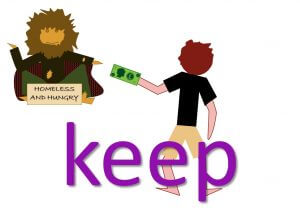
Psst…
Hey, did you know the verb ‘keep’ has many phrasal verbs. Since you like idioms and phrases, you obviously want to improve your fluency and speak like a native.
Am I right?
I thought you might like to learn the phrasal verbs with ‘keep’ too. They are very common in informal English and great to know/be able to understand if you happen to be speaking to a native. We use them all the time, like literally ALL the time.
